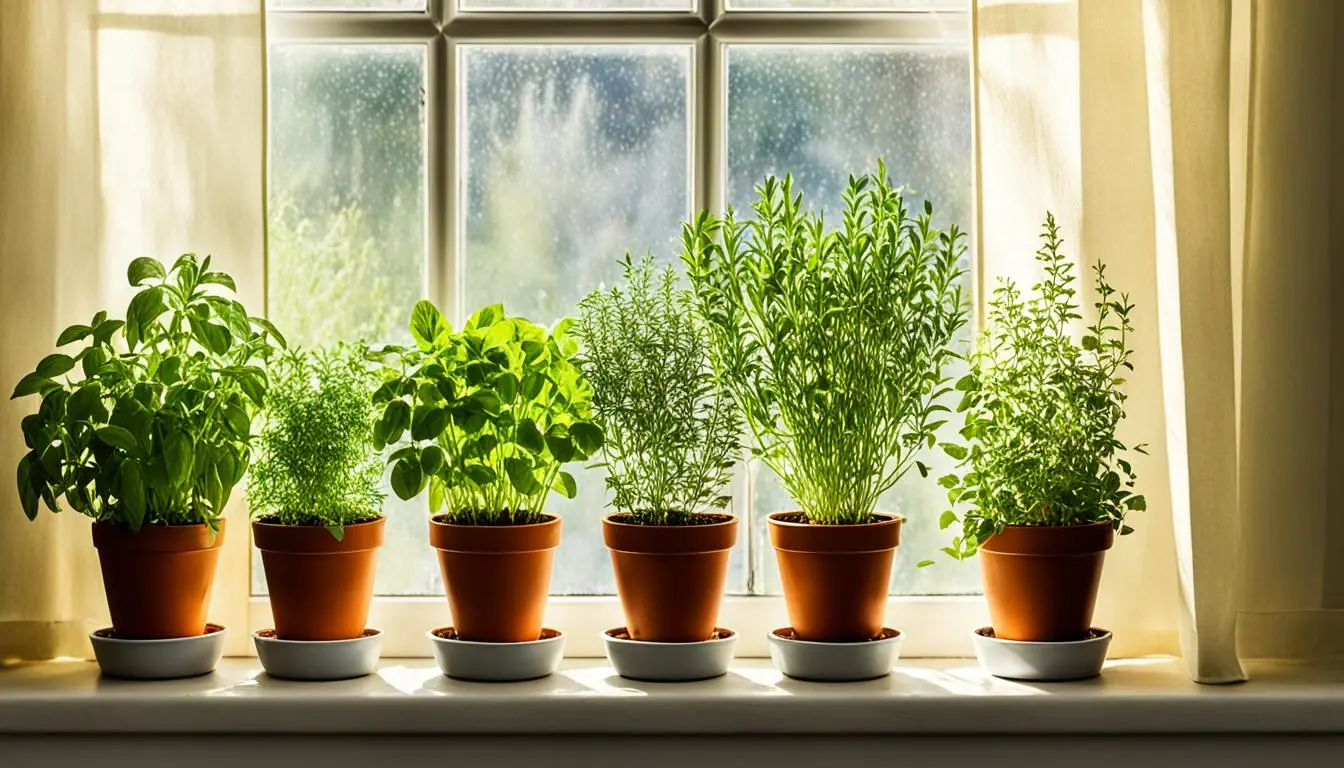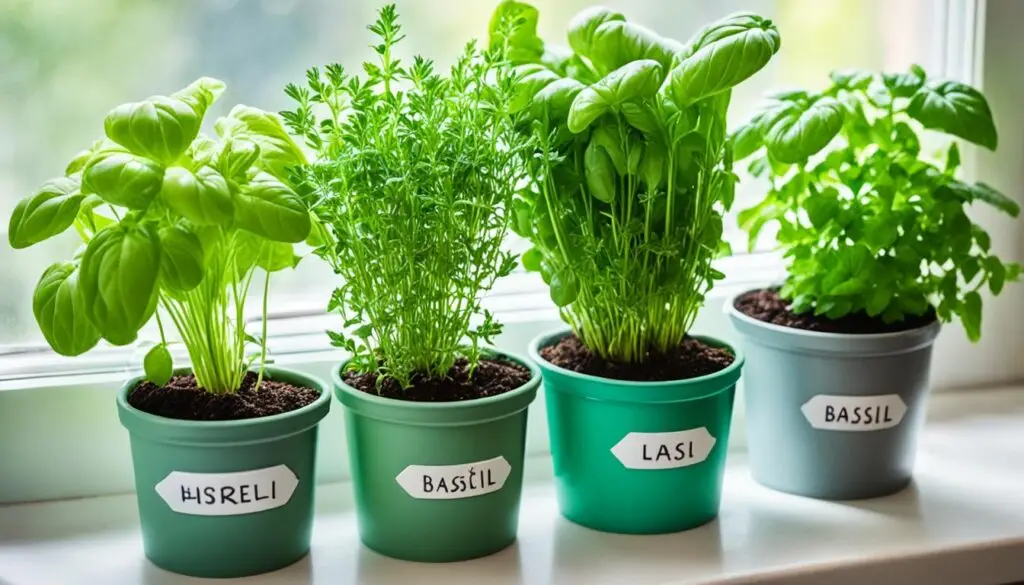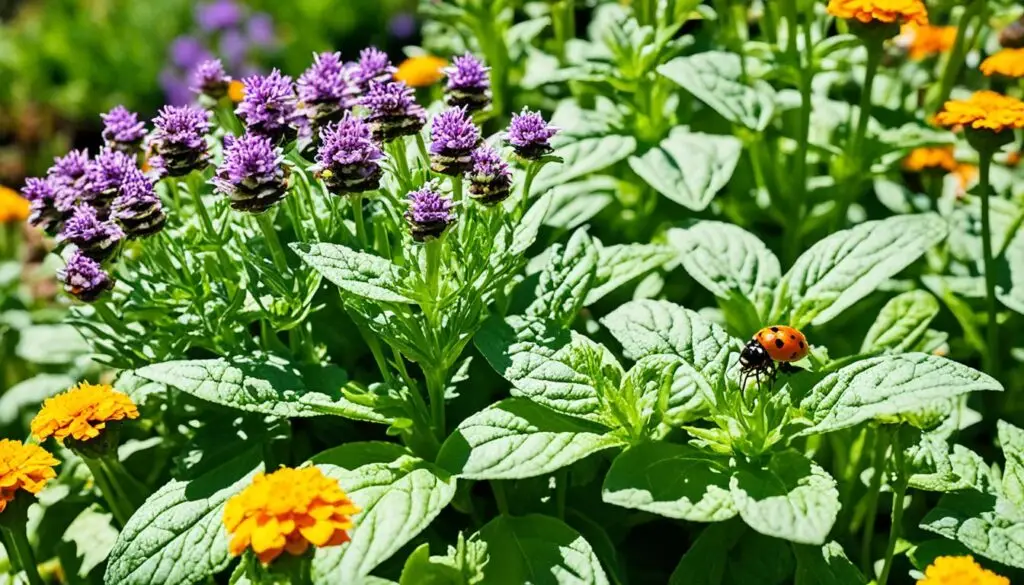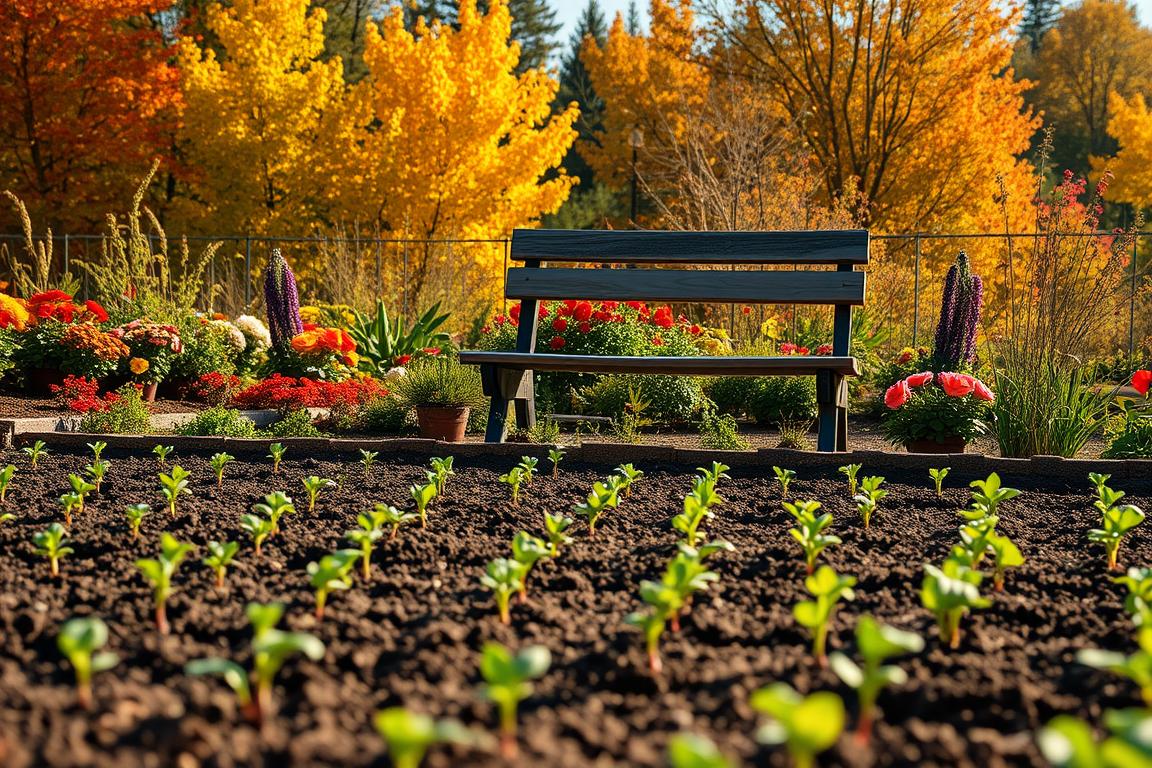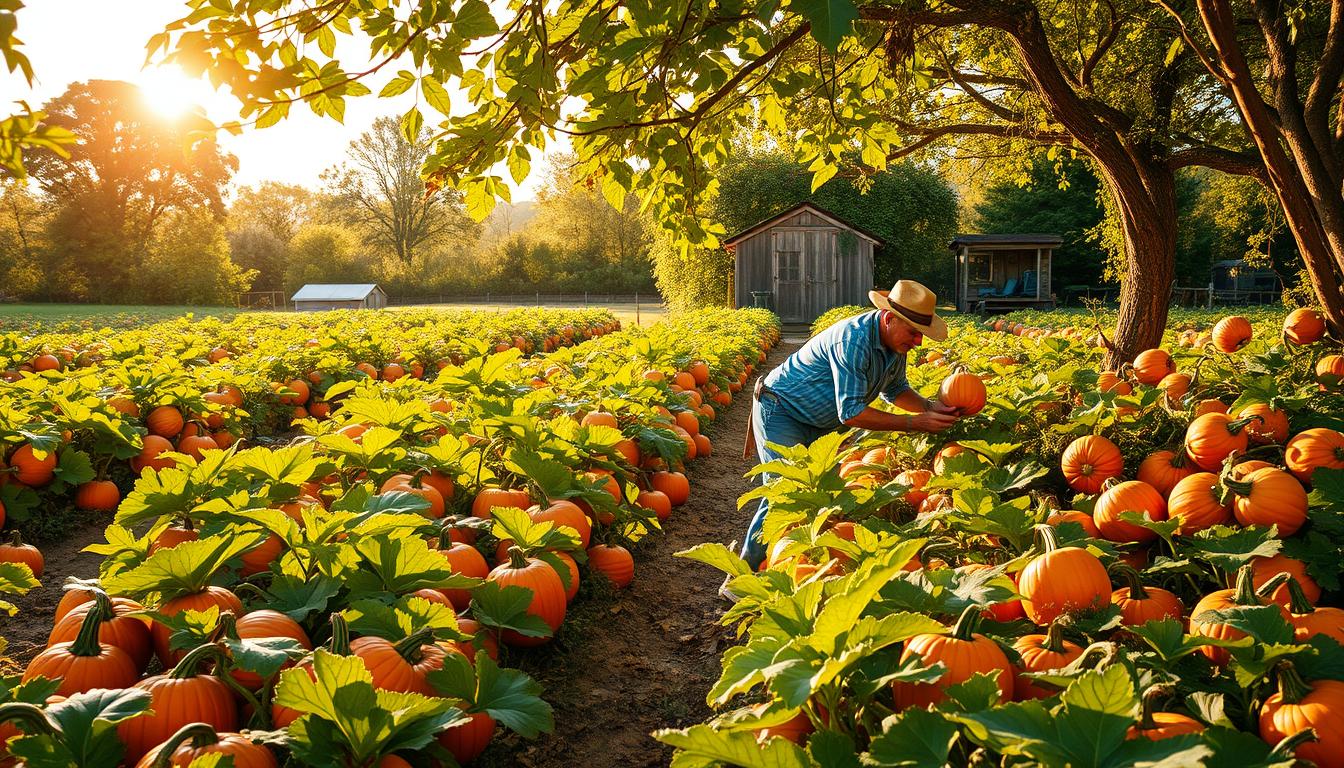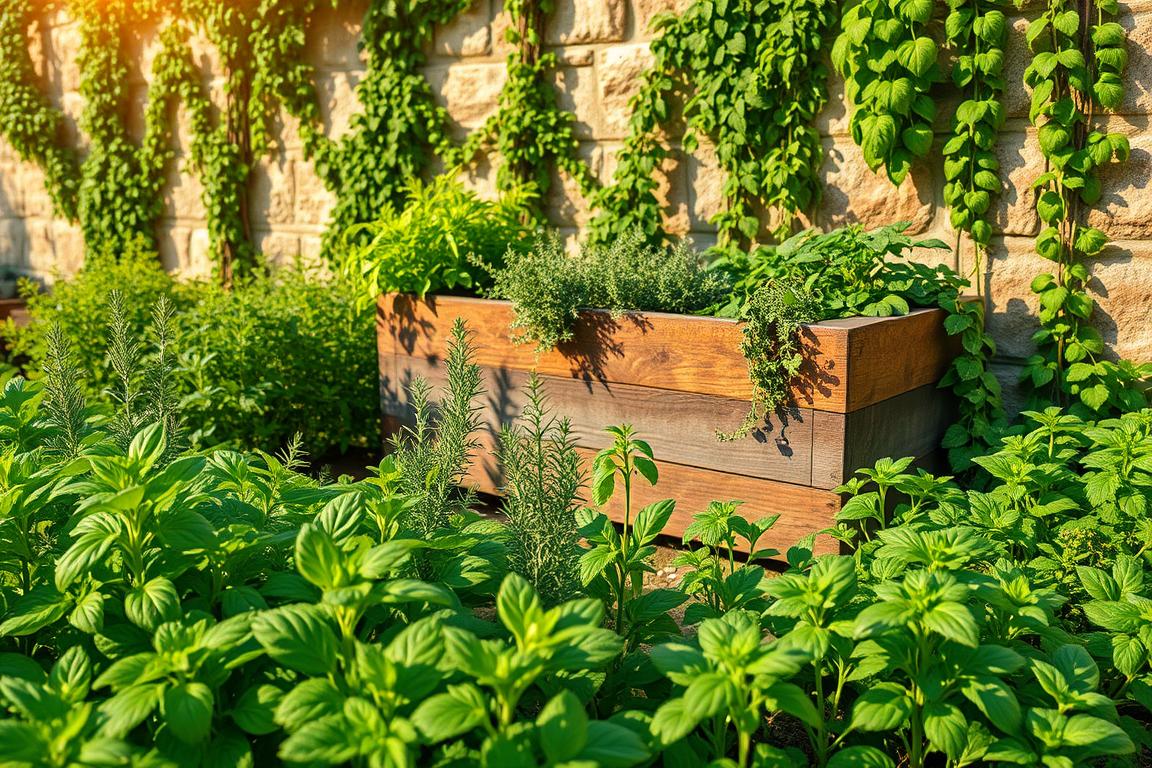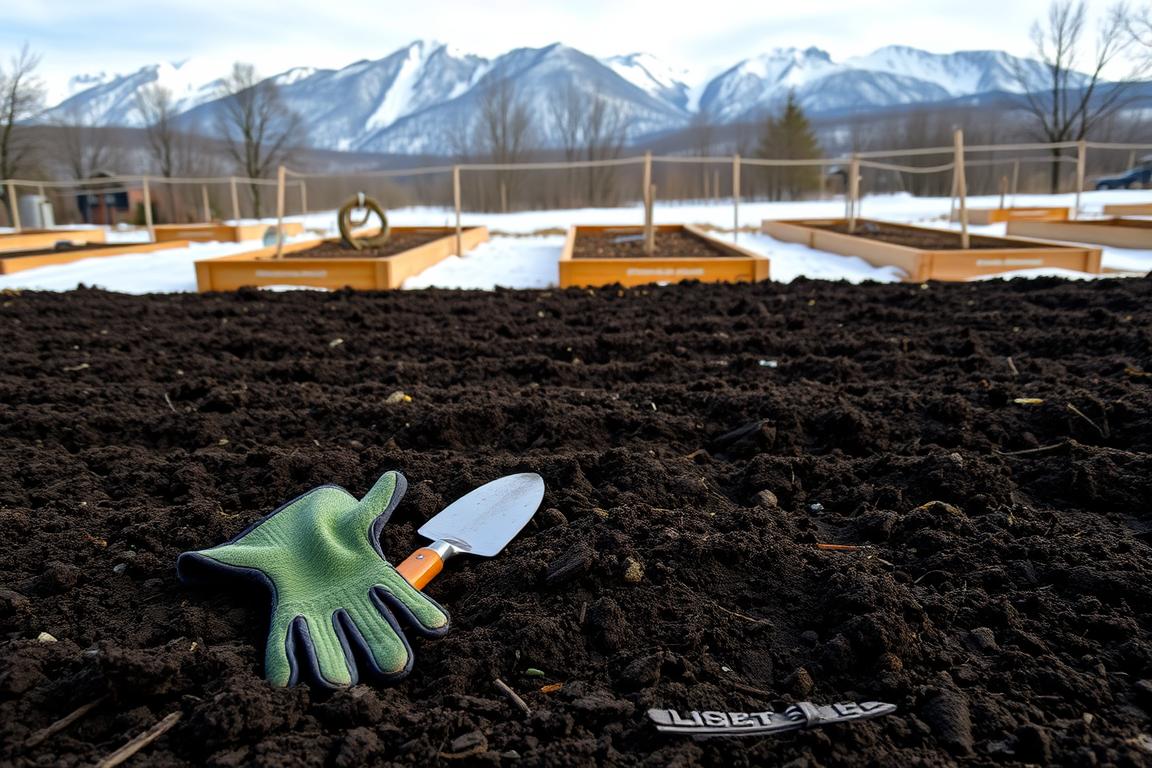Growing herbs is not only easy, but it’s rewarding too. These plants can thrive in gardens, on windowsills, or in pots. They enhance your cooking and learning to grow them is fun and straightforward. This guide will help you pick the best herbs, set up your space, plant them, care for them, and get the most from your herb garden.
Key Takeaways
- Herbs are easy to grow and can enhance your culinary experiences
- Selecting the right herbs based on your preferences and needs is crucial
- Deciding between an indoor or outdoor herb garden requires careful consideration
- Proper soil preparation and container selection are essential for herb cultivation
- Mastering planting techniques, watering, and pruning will ensure your herbs thrive
Choosing the Right Herbs and Setting Up Your Garden
Starting an herb garden means picking herbs wisely. It’s easy to overdo it but stick to the essentials. Begin with rosemary, oregano, basil, and thyme. Then, you can always grow more.
Selecting Herbs Based on Your Preferences
Think about what you like to cook and what you need for health. Basil, parsley, and cilantro add great taste to meals. On the health side, lavender, chamomile, and echinacea have medicinal use.
Deciding Between Indoor and Outdoor Herb Gardens
Decide if your herbs will grow inside or outside. If space is tight, indoor gardens are excellent. Outdoors lets you grow more kinds of herbs. Make sure your choice gets enough light and is easy to reach.
Preparing the Soil and Containers
Good soil is key, whether it’s in pots or a garden bed. It should drain well and be full of nutrients. Opt for a quality potting soil or compost. Also, pick the right containers or beds for each herb’s needs.
Planting and Caring for Your Herbs
Planting herbs requires specific methods. Annual herbs start from seedlings in spring or autumn. However, perennial herbs like rosemary can be planted in pots. They will grow back each year without much effort.
Watering and Fertilizing Your Herbs
Watering herbs right is key to their health. Most of them need good drainage and just the right amount of water. Too much water can cause their roots to rot. Always also feed them with fertilizer every few weeks. Use organic options. They help your herbs stay lush and strong.
Pruning and Harvesting for Optimal Growth
To keep your herbs growing well, they need care regularly. Trim off outer leaves gently to promote new growth. This step also stops them from getting too old or too tall. When you harvest, do it in the morning for the yummiest flavors. Make sure not to take all the leaves. Leave some for the plant to keep growing well.
“Growing Herbs at Home: A Beginner’s Guide”
This guide is all you need to start growing herbs at home. It works whether you’re starting with a big herb garden or just a sunny spot indoors. With the right herbs, space for them, planting and care, plus tips to boost your garden, you’ll have delicious herbs for cooking and more.
You’ll learn about favorite culinary herbs like basil, rosemary, and thyme. You’ll also get introduced to medicinal herbs. This guide makes herb gardening easy for anyone. You’ll find out how to make your herb garden flourish, no matter its size.
Are you a pro gardener or just starting out? This guide to growing herbs is here for you. Let’s get started and fill your home with tasty, fresh herbs!
Maximizing Your Herb Garden’s Potential
To get the most out of your herb garden, keep an eye on herb garden pest control and herb disease management. Watch your plants for aphids, spider mites, or signs of fungus. Act fast using natural solutions like insecticidal soap or neem oil.
Dealing with Common Pests and Diseases
Aphids can infest your herb garden fast, causing issues and spreading diseases. Check your plants often. Use a strong water spray or natural soap to get rid of these tiny pests. Spider mites love dry places. They can make leaves yellow and marked. Fight them with neem oil or specific miticides. You might face powdery mildew or gray mold, especially in wet areas. Cut off the affected parts. Use a mixture of baking soda or fungicide to stop the disease.
Repotting and Transplanting Herbs
Repotting herbs keeps them healthy and lush. As plants grow, they need more room for their roots. Transplant them to bigger pots or the ground in spring or fall. Carefully lift the plant, loosen the roots, and put it in a new, bigger pot with fresh soil. For moving herbs to the garden, pick a sunny, protected place. Add some compost to the soil. Move the plant gently.
| Herb | Ideal Pot Size | Transplanting Timing |
|---|---|---|
| Basil | 6-8 inches | Spring or early summer |
| Rosemary | 10-12 inches | Spring or fall |
| Thyme | 6-8 inches | Spring or fall |
| Mint | 8-10 inches | Spring or fall |
Watching out for pests, repotting, and transplanting herbs when needed will make sure your herb garden is at its best.
Conclusion
Growing your own herbs at home is rewarding and fun. You can easily start with the tips in this beginner’s guide. This guide will help you create a garden full of fresh herbs. Whether you have a big garden or a small sunny spot, you can enjoy the taste of homegrown herbs.
Start with a few herbs and see what works for you. Enjoy the journey of cultivating your own personal herb garden. It’s easy to include herbs in your daily life, from meals to healing. Learning about herb gardening means more flavors, health, and a proud feeling of growing your food.
Why not start growing herbs now? With the right tips and techniques, you’ll have a great herb garden. It will make your food and health better for many years. Happy herb gardening!
FAQ
What are some of the best herbs for beginners to grow?
Basil, rosemary, thyme, mint, and parsley are great choices for beginners. These herbs don’t need a lot of attention. They grow well in many places.
Can I grow herbs indoors or do they need to be planted outside?
You can grow herbs indoors or outdoors. Put them in pots on a sunny windowsill or balcony. This is perfect for small spaces. Choose herbs that match your space.
How do I prepare the soil and containers for my herb garden?
For containers, pick a soil that drains well. Mix it with food for plants. For outside, add compost to your soil. This makes it better for herbs. Always make sure water can flow out of your pots or garden. This stops the plants from getting too wet.
How often should I water and fertilize my herbs?
Water herbs when the soil’s first inch is dry. Avoid watering too much. Use a weak fertilizer every 4-6 weeks. Or feed them with compost tea. This keeps herbs strong and helps them grow.
How do I harvest and prune my herbs to encourage growth?
To harvest, cut off leaves but never take more than a third at once. Prune by pinching basil or cutting woody stems. This way, your herbs will grow fuller. You’ll have plenty to use.
How do I deal with pests and diseases in my herb garden?
Aphids, spider mites, and slugs are common pests. Use things like insecticidal soap to fight them naturally. Watch for fungus too. Treat it quickly with natural ways. This keeps your herbs healthy.


